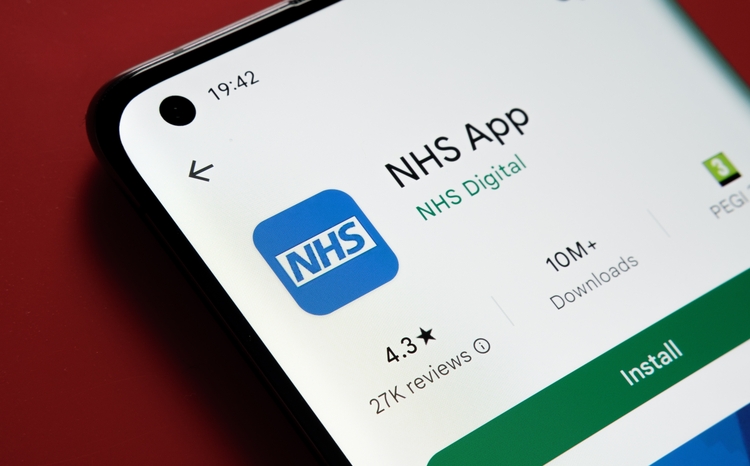To move into a digital future, the NHS needs to learn from the past
- 8 July 2025

The 10 year health plan’s technology aspirations are plausible, but “glaring omissions” need to be addressed, writes Pritesh Mistry
The government’s 10 year health plan has landed. The ‘analogue to digital’ shift is central to the plan and revisits many past ideas for reform, applies them to the present day and sprinkles a bit of cutting-edge technology on top.
The good news is that the technology aspects of this analogue-to-digital shift in the NHS are plausible over the next 10 years. The bad news is that this plan doesn’t seem to learn enough lessons from the past.
Patient-facing care
What does the plan have to say? The technology shift focuses on patient-facing care: the NHS App will be transformed with a dizzying number of new capabilities with non-intuitive names, from ‘My NHS GP’ to ‘My Choices’ to ‘My Specialist’ and ‘My Medicines’.
These new capabilities mean the app may provide personalised and tailored information in the patient’s preferred language in future, including help with signposting to self-care or triage for follow-up services. Patients will be able to self-refer, manage their care plan and add their own health data.
The quality of our healthcare shouldn’t be defined by whether we have the latest smartphone, the fastest broadband or the skills to use the tools made available
In short, patients are being given a huge amount of control and capability to manage their own health. Patients with the knowledge, skills and time to be able to use the app, understand the functions and ability to interpret or add data. But the government will need to do and say more to ensure people are not digitally excluded from these benefits and have the confidence and awareness to use the new capabilities.
The quality of our healthcare shouldn’t be defined by whether we have the latest smartphone, the fastest broadband or the skills to use the tools made available.
The HealthStore is another revived idea to help enable access to all centrally purchased health apps. It was a good idea initially and remains so. But the ramping up of the use of apps is also a significant shift in how people access and receive care.
To really deliver benefits for patients it must have wrap-around support for the patient at multiple points of their care journey from the NHS to social care and within communities and charities. This is so people can build trust, familiarity, confidence and skills to embed the use of these new tools.
Past attempts to join up patient records have failed, so this attempt needs to overcome data sharing challenges, lack of data standards and low trust
The single patient record intends to be the one place with all relevant information on the patient, improving their experience of accessing services. This will require new legislation so patients have the right to access their health records, providers share information and so the data can be used for service improvement and research.
Many past attempts to join up patient records have failed, so this attempt needs to overcome the data sharing challenges, lack of data standards and low trust in how the NHS uses and accesses data. Unfortunately, the plan falls short of tangible details on how these stubborn barriers are going to be circumvented.
For staff and the system, AI scribes, single sign-on and a new staff HR app form a key part of the future workplace.
AI scribes could significantly improve workload for staff and experience for patients. However, the purpose of these tools must be about improving staff experience as much as delivering productivity improvements for taxpayers, and so must be designed and implemented with staff.
Invest in people
So, what’s missing? Many of the other parts of healthcare services that are less patient-facing, but which still have a significant impact on the care we receive – such as back office and supply chains. It’s disappointing to see yet another plan that overlooks the basics of infrastructure and reliability.
Where the plan becomes much more ambitious is the section laying out five big bets for innovation: data quality and interoperability for research and innovation, AI tools, genomics and predictive analytics, wearables, and robotics.
It sets out the development of these innovations and new Regional Health Innovation Zones intended to devolve freedoms and create partnerships across a locality to enable transformation.
To boost innovation there is also a new operating model to increase the freedom of foundation trusts which perform well, while the centralisation of procurement and innovation passports are intended to aid scaling.
It all sounds positive and these technologies are good candidates for revolutionising health care. But there are glaring omissions to make this a reality: the investment and resources to support people and leaders to work in a different way to profoundly change how the NHS approaches innovation.
Lastly, and perhaps most importantly, where is the involvement of people in making this shift a reality? New and different roles and skills are needed for these innovations to transform care.
The big bets could revolutionise care but raise very challenging moral and ethical questions, such as detecting untreatable disease through genomic testing. The government and healthcare system must work with people and communities to win hearts and minds and prepare for a different approach to how digital healthcare is deployed or risk rejection, resulting in the ambitious vision of this shift not being converting into a reality.






2 Comments
A thought provoking article. SPR, the golden goose and never a golden egg: I experienced the pain of “the spine”. Something that bothers me – how do you maintain the NHS as a force for social cohesion when digital health experiences become increasingly personalised?
Good piece Pritesh, as I’ve written elsewhere I think that the plan is almost an embarrassment of riches on digital, but it fails to focus on the foundational elements of infrastructure, people and skills and places far too much emphasis on the national grand projects of the Single Patient Record, FDP and NHS App. SPR and FDP are the wrong things to focus on, will drain far too much of what may yet prove to be far more limited resources than SR25 suggests. The SPR will quickly prove a massive distraction and is IMO very unlikely to succeed in its ambitions before being severely scaled back.